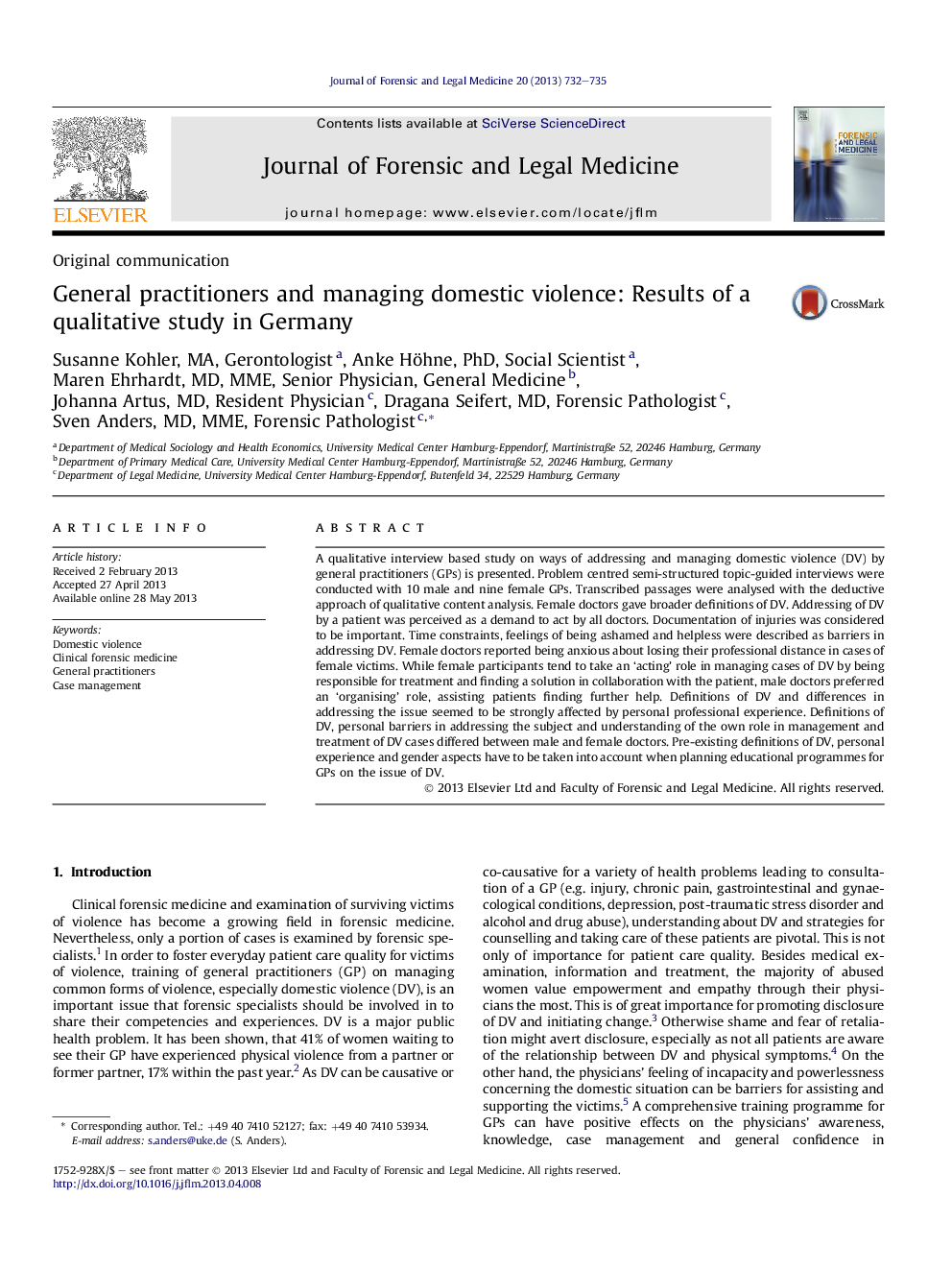ترجمه فارسی عنوان مقاله
پزشکان عمومی و مدیریت خشونت خانگی: نتایج یک مطالعه کیفی در آلمان
عنوان انگلیسی
General practitioners and managing domestic violence: Results of a qualitative study in Germany
| کد مقاله | سال انتشار | تعداد صفحات مقاله انگلیسی |
|---|---|---|
| 36179 | 2013 | 4 صفحه PDF |
منبع

Publisher : Elsevier - Science Direct (الزویر - ساینس دایرکت)
Journal : Journal of Forensic and Legal Medicine, Volume 20, Issue 6, August 2013, Pages 732–735
ترجمه کلمات کلیدی
خشونت خانگی - پزشکی قانونی بالینی - پزشکان عمومی - مدیریت پرونده
کلمات کلیدی انگلیسی
Domestic violence; Clinical forensic medicine; General practitioners; Case management

